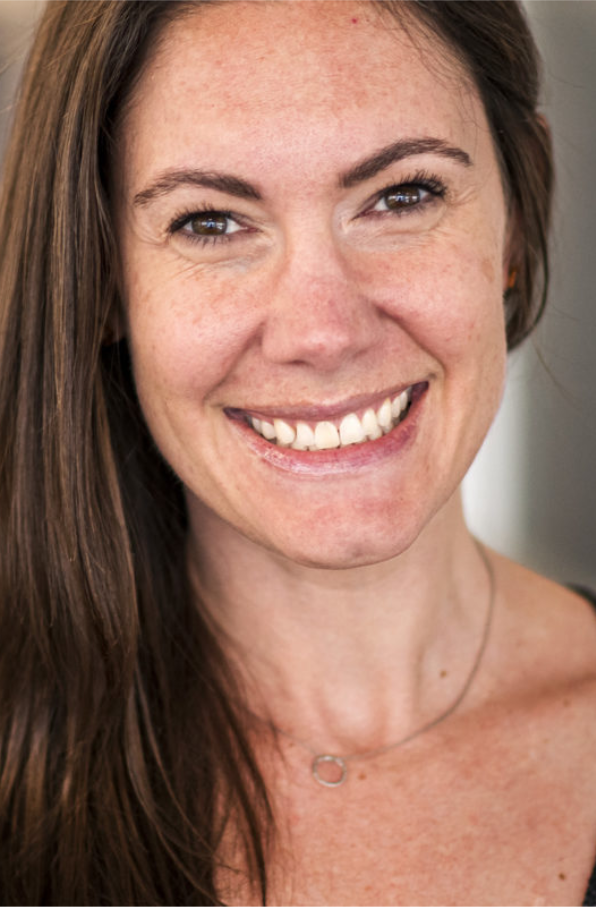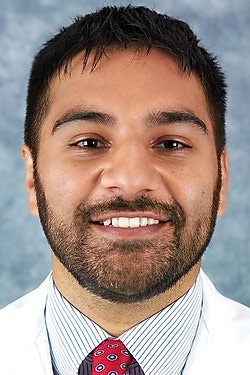2022 Cohort of HGHI Burke Global Health Fellows

Jocelyn Kelly
PhD
“The Burke Global Health Fellowship gives me a unique chance to expand my research intersection of public health and climate solutions. This support comes at a critical time when the role of women in addressing climate change is being increasingly acknowledged, but there is a gap in identifying successful locally-led solutions. I’m honored to contribute to research at this important intersection of issues, and grateful for the chance to expand my work with our incredible project partners.”
– Jocelyn Kelly
Dr. Jocelyn Kelly is the Director for Harvard Humanitarian Initiative’s (HHI) Gender, Rights and Resilience (GR2) program, where she implements projects to examine issues relating to gender, peace, and security in conflict-affected and climate-fragile environments. Her work focuses on understanding and preventing gender-based violence and human trafficking in complex crises, with an emphasis on strengthening mechanisms for resilience and social cohesion in these settings. She has given briefings related to gender and security to the United Nations Security Council, the U.S. State Department, USAID, the World Bank, OFDA, the Woodrow Wilson Center, and the U.S. Institute of Peace. Dr. Kelly was awarded the Paula Kantor Award for Excellence in Field Research from the International Center for Research on Women (ICRW) in 2019. She was the first author of a publication voted one of the “most influential articles of 2016” by the peer-reviewed journal Conflict and Health. Most recently, Dr. Kelly’s work has explored the connections between human rights and environmental protection. Her other research interests include: promoting and measuring GBV risk mitigation in humanitarian emergencies; understanding the continuum of GBV before during and after humanitarian crisis; and measuring and promoting social cohesion and community resilience as a pathway to reducing violence.
Stronger communities and stronger environments: An evidence-based intervention to improve human and climate resilience in fragile settings
Project Description:
Gender-based violence (GBV), climate change, and violent conflict represent three of the greatest threats to global peace and wellbeing. Both conflict and climate change have urgently exacerbated GBV, the most widespread human rights abuse affecting humanity. Climate change – a defining challenge of our time – can increase the risk of GBV through numerous pathways while negatively impacting efforts to mitigate these risks. In many cases, the first and most severe impacts of both conflict and climate change fall on women. Perhaps nowhere are these three threats more pressing than in eastern DRC. An area affected by over three decades of conflict and characterized by extremely high levels of GBV, the World Bank has listed DRC as one of the five countries least prepared to cope with climate change. Yet, it is a country centrally important for building a clean climate future, from serving as the world’s second-largest carbon sink for greenhouse gases to being one of the world’s most important producers of the minerals essential for low-carbon technologies.
Women make up half of the workforce in farming and extractive industries, yet they are highly marginalized and face high levels of exploitation and abuse, particularly GBV. The proposed project, called “Resourceful Empowerment,” will build upon a long-term collaboration with women leaders in the eastern Democratic Republic of the Congo (DRC) to continue to improve human rights, gender equity, and climate justice to better cope with these interlinked challenges. This project expands on a successful pilot training that was developed through a multi-year collaboration between Congolese human rights activists and Dr. Kelly. It uses an innovative approach combining evidence-based, art-focused education, community action, and in-depth trainings in order to foster change. The curriculum will be scalable, evidence-based, women-led, and inclusive, with clear pathways for uptake.

Crystal North
MD, MPH
“The Burke Global Health Fellowship is making it possible for me to expand my research from a single site to a regional air quality network and to create collaborative opportunities to study the impact of ambient air pollution on communicable and non-communicable health outcomes among vulnerable populations in Uganda, positioning me at the forefront of global health researchers working to ameliorate the impacts of air pollution on lung health”
– Crystal North
Dr. Crystal North is an Assistant Professor of Medicine at Harvard Medical School and an Attending Physician in Pulmonary and Critical Care Medicine at Massachusetts General Hospital. She is also faculty in the MGH Medical Practice and Evaluation Center, affiliate faculty at the MGH Center for Global Health, and department associate in the Department of Environmental Health and a member of the Harvard NIEHS Center for Environmental Health at the Harvard T.H. Chan School of Public Health. Dr. North completed her undergraduate degree at Seattle Pacific University, medical school at the University of Washington School of Medicine, internal medicine residency at New York Presbyterian Hospital-Weill Cornell Medical Center, and pulmonary and critical care fellowship at the Harvard combined program of MGH/BWH/BIDMC, and her MPH at the Harvard T.H. Chan School of Public Health. She is an NIH-funded clinical researcher with a focus on reducing the impact of air pollution on lung health among vulnerable populations in resource-limited settings. Her current research focuses on characterizing the influence of air pollution on lung health among people with and without HIV in Uganda. Her work has been supported by an NIH Fogarty Global Health Fellowship, a Development Award from the Harvard Center for AIDS Research, a Foundation Award from the American Thoracic Society, a Parker B. Francis Foundation Fellowship, and an NIH K23 Career Development Award.
Air pollution and lung health in resource-limited settings: Understanding the impact of biomass
Project Description:
Ambient air pollution (AAP) is the leading environmental cause of death. In 2016 alone, it was responsible for over 4 million deaths and 103 million lost years of healthy living worldwide, an increase of almost 50% over the last 25 years. Chronic lung disease is a leading complication of AAP exposure, and the majority of the one billion people living with chronic lung disease globally are in resource-limited settings (RLS). Yet, the contribution of AAP exposure to the lung health of people in RLS remains largely unknown because it is not possible to measure ground-level air quality in most places. It is likely that biomass fuels such as wood and agricultural products play a larger role in RLS than in high-income countries, where transportation and factories are the major sources. Furthermore, vulnerable populations – women, those of lower socioeconomic status, and people living with HIV – are likely to be disproportionately affected. The paucity of data in RLS led the 2017 Lancet Commission on Pollution and Health to call for an increased study of pollution-related health effects in these settings. Chief among the Commission’s recommendations is the need for more detailed air pollution mapping in RLS to better define the health burden and guide implementation studies to improve health outcomes.
To address this gap in knowledge, I have established an air pollution monitoring station in southwestern Uganda paired with a clinical research infrastructure that includes lung function and chest CT imaging, through a collaboration between Mbarara University of Science and Technology, Harvard T.H. Chan School of Public Health and Massachusetts General Hospital. My preliminary data suggest that AAP levels in the region substantially exceed international health standards, are driven largely by biomass fuel burning and that women and people living with HIV may be particularly vulnerable to pollution-associated respiratory morbidity. Through a new collaboration with atmospheric scientists at the National Aeronautics and Space Administration (NASA), this Burke Fellowship support will enable me to leverage our environmental sampling infrastructure to establish spatiotemporal models of ambient air pollution in southwestern Uganda and to characterize the influence of biomass-predominant air pollution on lung health among vulnerable populations.

Pooja Chitneni
MD
“I am thrilled to be the recipient of a 2022 Burke Global Health Fellowship. This fellowship support will allow me to pursue research related to global STI care and prevention which is a relatively understudied and under-funded area. This award would allow me to focus specifically on STI partner notification to develop a novel STI partner notification services delivery intervention which I would then be able to further develop and test in the future, thus launching my career as an expert in STI care and prevention in resource-limited settings.”
– Pooja Chitneni
Dr. Pooja Chitneni is an Instructor in Medicine at Harvard Medical School and an Infectious Disease and Internal Medicine physician at Brigham and Women’s Hospital. She is also an affiliated researcher at the Massachusetts General Hospital Center for Global Health. Dr. Chitneni earned her undergraduate degree from Northwestern University, her medical degree from the University of Iowa, completed her residency in Internal Medicine at Boston Medical Center, and completed her Infectious Diseases Fellowship from the combined Brigham and Women’s Hospital and Massachusetts General Hospital program. Dr. Chitneni’s research focus is on sexually transmitted infection (STI) and HIV prevention and treatment in resource-limited settings. She is particularly interested in partner notification and the prevention of STI and HIV transmission. Her research takes place in South Africa and southwestern, rural Uganda.
Developing an STI partner notification services delivery intervention in southwestern, rural Uganda
Project Description:
The global, estimated, STI incidence among people ages 15-49 for four curable pathogens (chlamydia, gonorrhea, trichomoniasis, and syphilis) was 374 million in 2020, with the World Health Organization (WHO)-a classified African region home to the highest proportion of STIs. Through my prior work in southwestern, rural Uganda screening for chlamydia, gonorrhea, trichomoniasis, and syphilis, we demonstrated a 24% STI prevalence among women vulnerable to HIV exposure and planning for pregnancy. Despite treating all participants and offering partner notification cards and expedited partner therapy, 21% of women had an STI at six-month. This preliminary work led to my qualitative study (funded through Fogarty-NIH) exploring STI knowledge, beliefs, and partner notification among men and women affected by HIV with recent or plans for pregnancy. We found that participants desired increased healthcare provider assistance in partner notification and wanted partners to be evaluated by healthcare providers before delivering expedited partner therapy.
While STI partner notification and treatment are crucial pieces of the WHO STI management guidelines, healthcare providers in resource-limited settings (RLS) have little time to devote to the counseling and contact tracing needed to execute this recommendation and prevent STI recurrence. Task-shifting, or assigning certain tasks to additional healthcare staff, allows for comprehensive care while decreasing healthcare provider workload. Such task-shifting methods are well-established for HIV interventions. However, task-shifting has not been robustly studied for STI care in RLS. I propose to develop a novel STI partner notification services delivery intervention that leverages innovative care delivery systems. I will first conduct qualitative in-depth interviews with a group of healthcare workers, administrators, and potential patients to explore facilitators and barriers to different task-shifting delivery models for STI partner notification. These interviews will inform the development of a novel STI partner notification services delivery intervention. I will then seek feedback both through an in-person day-long meeting and through a modified Delphi technique using surveys to iteratively refine the STI partner notification services delivery intervention.

Zahir Kanjee
MD, MPH
“By developing, implementing, and studying this curriculum, I hope to make a lasting impact on health professional education in Rwanda and beyond. The Burke Fellowship will allow me to continue to work and innovate at the intersection of my two greatest professional passions: global health and medical education.”
– Zahir Kanjee
Dr. Zahir Kanjee is a hospitalist and firm chief at Beth Israel Deaconess Medical Center and Assistant Professor of Medicine at Harvard Medical School. Dr. Kanjee received his undergraduate degree in Public and International Affairs, with a Certificate in African Studies, from Princeton University, and his MD from the Yale University School of Medicine. He completed residency in Internal Medicine at Brigham and Women’s Hospital, where he was a Doris and Howard Hiatt Resident in Global Health Equity. He obtained his MPH in Clinical Effectiveness from the Harvard School of Public Health and is a graduate of the Rabkin Fellowship in Medical Education at Beth Israel Deaconess Medical Center. Dr. Kanjee is the editor of two books on evidence-based medicine and serves as an Assistant Series Editor for Annals of Internal Medicine and a Deputy Editor for the Journal of Hospital Medicine. He has worked clinically, taught, and/or conducted research in numerous parts of the developing world, including South Africa, Malawi, Rwanda, Haiti, and Liberia.
Professional Development Course for Medical Students for the University of Global Health Equity in Kigali, Rwanda
Project Description:
The third clerkship year of medical school is mentally and emotionally challenging, especially for learners in resource-limited settings. Learning about and reflecting on these challenges can aid professional development and ensure the growth of successful, empathic, and effective physicians. Courses with such a focus are rare in medical school curricula in the developing world. The University of Global Health Equity (UGHE) is a new Rwandan medical school preparing the best and brightest medical students in the region for a career in medicine and the advancement of health equity. We aim to implement a year-long longitudinal professional development and reflective medicine course for UGHE clerkship students. The curriculum, adapted from “the Developing Physician II” at Harvard Medical School, covers issues such as dealing with suffering and death, professional hierarchy, dysfunctional teams, and physician wellness, among other topics. The course is primarily discussion-based in small groups, informed by seminal readings and facilitated by Rwandan and international faculty pairs. We will conduct an in-depth qualitative analysis using focus groups to assess the course and its impact on students and faculty, sharing resources and lessons learned so similar curricula can be implemented in other medical schools in the developing world.


